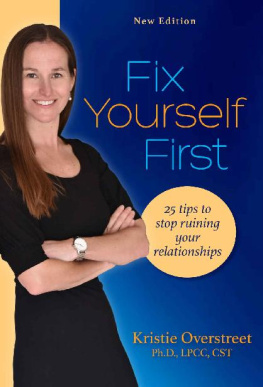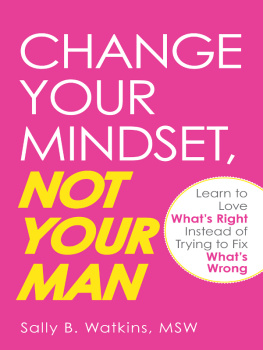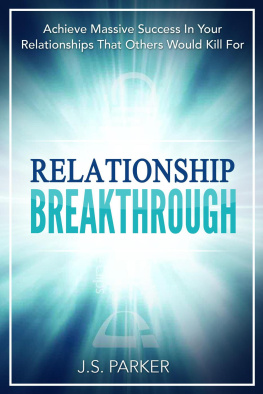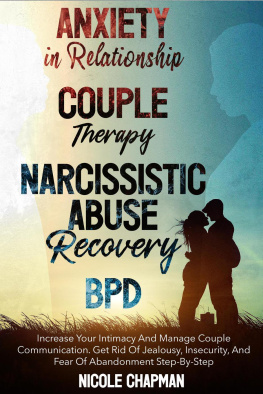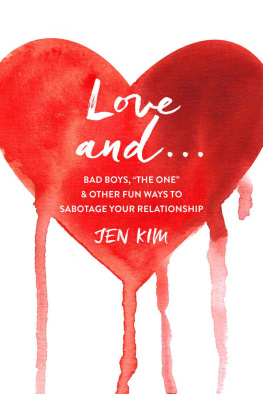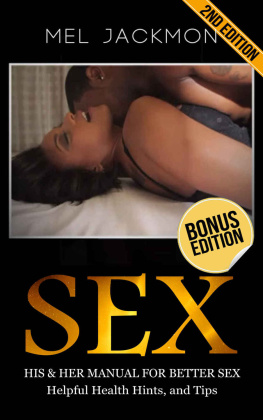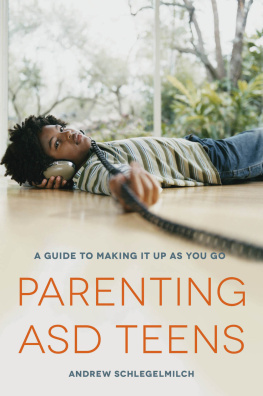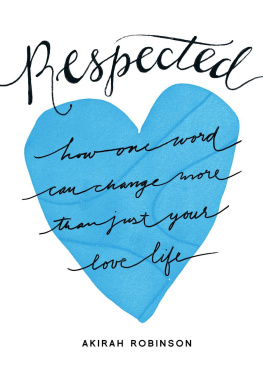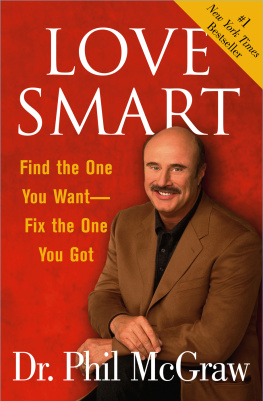You may be wondering why I wrote the 2 nd edition to Fix Yourself First after publishing the 1 st edition last year. I realized that I had so much more information to give you that I didnt include in the 1 st edition. As I work with individuals and couples, I learn something new every day.
I wanted to include more stories, information, tips, and techniques to help you improve your relationship. I also wanted to include three new quizzes to help you better understand yourself and your relationships. I hope that this new information helps you make the changes you need in order to get the relationship you deserve.
The idea for this book came from both my professional and personal experiences with relationships. As many women do, I stayed past the expiration date in more than one unhealthy relationship. I was focused on the hope that my partner would change. I spent too much time hoping and wishing. I didnt take the time to look in the mirror at what I needed to do differently. This led me to get the same result in the next relationship.
It was through my personal growth and the amazing experience of working with clients over the past decade that helped me accept the idea that the change that I needed started within myself. I was able to figure out the need to focus on improving myself versus waiting for my partner to change. Unhealthy partners dont change, but I realized that I could. When I made changes for the better, my tolerance to settle for unhealthy relationships also changed. This gave me the confidence and direction I needed to pursue healthy relationships.
This book is for all gender identities, sexual orientations, and types of relationships. I use the term partner through this book and in my daily life to be inclusive of all people. I hope that you enjoy the tips and techniques to fix yourself first so you can find the healthiest relationship possible.
TIP 1
DEAL WITH YOUR CONTROL ISSUES

No one wants to be labeled as having control issues. Women dont begin relationships and think about how they can control things. Most women dont realize that they have issues needing control. It is an issue if it is causing a problem in your relationship.
Relationships arent a one-way street that focuses only on the needs of one partner. A healthy relationship is one that flows steadily between both partners. The ups and downs are normal and to be expected. If your ups and downs are extreme then you need to evaluate what issues are leading to this movement. Are there problems with listening to one another? Are there problems with speaking to one another? What patterns are you noticing that lead to conflict?
Think about your expectations of your partner. What do you expect from them? Take a sheet of paper, think about what you expect from them, and write it out. Dont wait and say that you will do it later. Maybe you expect trust, loyalty, fairness, and/or love. For example, you may expect that your partner should always be loyal to you or that they should always meet your needs.
Now looking back at these, are some of your expectations unrealistic? Are any of them impossible for your partner to provide? Look for words such as should, ought to, must, and always. These words create expectations that are seen as demanding and unrealistic.
How do you define control? How does your partner define control? Your control issues may be suffocating your relationship. If you think, This is just who I am then you need to look inward and make changes. If you find another way to justify your need to control things, you need to look at how this is affecting your relationship. Just because you have done this for so long doesnt mean that it is okay to continue doing.
DO YOU HAVE CONTROL ISSUES?
Has your current partner or past one told you that you have control issues? Have you been called controlling in relationships? If this happened, did it make you angry? Is it possible that you have issues with needing to control things around you?
Just as a reminder, its only considered an issue if it affects you and/or your relationship in a negative way. If you are unsure, try asking your partner or people you are close with. If they say that you are controlling or that they think you have control issues, its worth the time to look inward.
The need to have control comes from within. It is important to explore what this is about. Be gentle with yourself on this journey.
The need to have control may come from a place of fear. You may fear what would happen if things were out of your control. If you are not in control, then you dont know what would happen in your life. What if things dont go as you planned them to? What if you lose something that is important to you? What if you get hurt? What if your partner cheats on you? What if they stop liking or loving you?
These worries are realistic and could happen. However, almost all of the things we fear will happen, dont actually occur. If its true that 99% of the things we worry about dont come true, then maybe you can let go of some of your fears. You are more likely to lose your partner if you continue to be controlling. This will make your fears a reality.
There is a big difference in having things go the way you would like them to and always getting your way. There is nothing wrong with wanting to see life happen in a certain way. However, if you keep trying to control or attempt to change your partner, you may find yourself alone. You would then be solely responsible for making your fear of losing your partner come true. No one gets their way most of the time. Why do you think you are different? What makes you think that things have to go exactly how you want them to or there is an issue?
EXAMPLES OF CONTROL ISSUES
- Excessive calling, texting, or trying to contact your partner throughout the day.
- The obsessive need to know where your partner is at all times.

